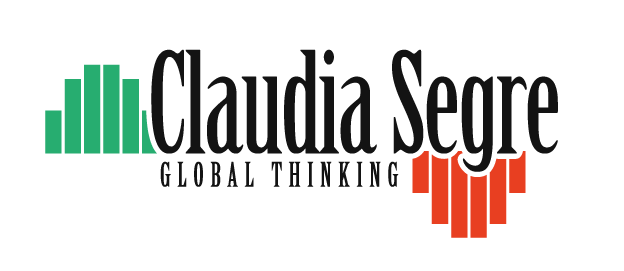The outcome of the war conflict triggered by the Russian attack on Ukraine will not see an end in the short term, but the battle that is closest to Putin’s heart he has already won: to give the final push to Western democracies by fuelling conservative political drift. An interference that has been systematically underway for ten years, and which has borne fruit particularly in relation to Europe, which had the audacity between 2013 and 2014 to sanction with the Association Agreement between Ukraine and the European Union the crumbling of the last shred of the Wall, modifying the role of ‘inviolable buffer’ country that Russia had attributed to it since the bold declaration of independence in 1991.
There are many who are now openly saying that we are facing the end of a geopolitical era that goes hand in hand with the start of a third phase of the globalisation process, epochal events that will see a new post-2030 world order with new actors on the world stage prevailing over others. But let us review them starting from a solid statistical basis offered to us by the Democracy Report 2022 published by V-Dem, with a data base spanning from 1789 to 2021 on 202 countries. Which sees the spread of autocracies increasing from 50 to 70% in ten years, with a percentage of the world population involved ranging from 5 to 36%.
Russia: The Fall of an Empire
While the oppositions gather in the Baltic countries to reorganise themselves and wait for the right moment to strike the last of the Caesars of the Soviet, the social situation at home tells a paradox: between the worsening social inequalities aggravated by the plagues of all time, such as widespread alcoholism and unemployment that go hand in hand, and the systematic recruitment in the poorest segments of the population of young soldiers to be sent to the front line lured by high salaries.The incessant propaganda of the television and internet channels, now armoured and unpenetrable from the outside, promises rewards and compensation to families in the event of death, and so we see images of family members proud to have received a household appliance, a car and/or subsidies in the ‘name of the fatherland’ and the sacrifice of their loved one who died fighting.
And while the voice of the Chairman of Lukoil’s CDA, who had called for an end to the conflict, dies a suspicious death falling from a hospital window, analysts are focusing on the figure of Rosneft CEO Igor Sechin . By now Putin’s designated assassin, he will bring the siloviki group, a dome of ex-KGB technocrats, firmly back into power if the Putin empire does not crumble first. But Sechin is a very self-confident man and perfectly embodies the Russian strategy perpetrated over the past 10 years to erase the social market economy, the basis of Western economies.
Europe’s indecisions on gas price limits play into the hands and allow the refinancing of the Russian war machine, which can however also count on other valuable alliances, from the BRICS to China.
China vs. America vs. BRICS
Against the backdrop of a climate of tragedy instilled by Russia with explicit videos in the series “Europe will not survive the harsh winter unless it suffers unspeakable pain”, the two economically healthiest players continue their confrontation over trade disputes with raw materials and semiconductors at their core. A clash that has escalated since Nancy Pelosi’s visit to Taiwan, a surprise that was apparently not welcomed even by Biden himself, who apparently suffered it because the purpose for the US was clear: to enter the world stronghold of semiconductors and avoid the irreparable with a definitive Chinese takeover of the world’s leading producer of micro or rather nanochips!
For both, therefore, November marks a watershed: where the US midterm elections could see Biden survive but with Senate and Congress in Republican hands and Xi Jinping consolidate his power in a third round, not before making a crucial decision on whether or not to invade Taiwan.
Certainly the BRICS, (the trade alliance between Brazil, Russia, India, China and South Africa), are not standing idly by and remain the stone guests at the table of the new global risk.
Bolsonaro’s losing the elections in less than a month will probably disprove his anathema launched at his inauguration about his ‘divine mission’, and as such inseparable from popular consensus. But in the meantime he leaves a country in tatters with 14% of the population below the poverty line.
India plays an opportunistic game by mediating between China and the US with the sole aim of prioritising Russian energy supplies from the former and strategic trade agreements from the latter, and without ever taking sides.
The group of formerly emerging countries, which in the 1990s depopulated the portfolio strategies of mutual funds, now with the inclusion of Iran and Argentina, announced by Xi Jinping last June, assume a clear political mission, in an anti-American key, and against the overwhelming power of the US dollar. Through the New Development Bank closely linked to the alliance, an alternative economic space is thus created to the development banks linked to the International Monetary Fund, where especially countries under sanctions can draw on substantial funds without difficulty.
A closer look reveals how the political aim has now far surpassed the initial spirit of trade aggregation and economic protection from the crises of the regions most at risk: one only has to add to the BRICS, also in the light of the future enlargement to include Turkey and Egypt, the Shanghai Organisation (SCO) and the financial leverage generated respectively by the New Development Bank and the AIIB Asian Infrastructure Investment Bank, founded by China in 2014, to understand that the new geopolitical order will start from a clash between NATO countries against the rest of the world, led firmly by China.
Europe: land of conquest or land of redemption of democracies?
Five Chinese giants with a capitalisation worth half that of Italy’s Piazza Affari stock exchange will leave the New York Stock Exchange, but at least another 200 shares of Chinese companies may leave the US lists following the implementation of the new regulatory law voted by the Trump government that allows for financial audits and capillary controls on the accounts and chain of control of listed ‘foreign’ companies and that has seen the US Congress confirm 2024 as the final date for exit in the event of irregularities. The two supervisory entities involved, the China Securities Regulatory Commission and the U.S. Public Company Accounting Oversight Board, appear to have reached an agreement that is part of China’s strategy to stall, mitigate the effects of delisting on its domestic markets and give companies time to reposition themselves mostly in the European Union and/or BRICS markets.
European markets are China’s chosen landing place for its companies, at a time when EU bodies are pushing not only for Next Generation NGEU funds, but also for a common energy and cybersecurity policy to defend themselves against threats, especially from Russia, which would like to see a disjointed and weak European Union.
Just ten years ago, the world looked very different from today. Since 2021, the world has changed: there are more countries in decline than those advancing on almost all democratic aspects captured by the V-Dem research measures. There is a substantial deterioration in freedom of expression in a record 35 countries this year. And when polarisation reaches toxic levels by joining autocracy, democracy is typically dismantled.
The dismantling of democracy as measured by the index is evident in the top five countries leading this authoritarian drift: Brazil, Hungary, Poland, Serbia and Turkey. Countries that join the authoritarian ones that have already been on the world’s science for a long time from China to Iran and up to Afghanistan.Hate speech and divisive speeches together with bad information create an escalation in the polarisation of our societies as the assault on the US Capitol proved by putting democracies to the test. And this Putin has known all along so he thinks he already has his victory pocketed.


